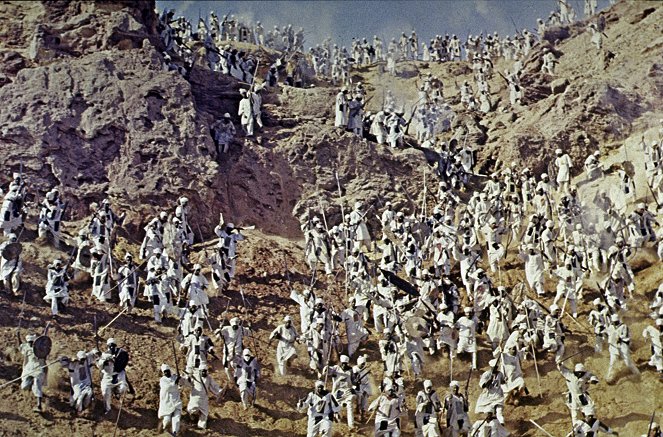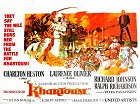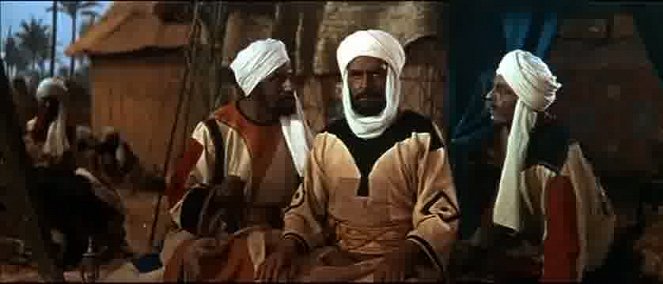Rendező:
Basil DeardenForgatókönyvíró:
Robert ArdreyOperatőr:
Edward ScaifeZeneszerző:
Frank CordellSzereplők:
Charlton Heston, Laurence Olivier, Richard Johnson, Ralph Richardson, Alexander Knox, Johnny Sekka, Michael Hordern, Nigel Green, Hugh Williams (több)Streaming (2)
Tartalmak(1)
Az 1880-as években, Szudán végtelen sivatagában, egy magát El Maghdinak, Messiásnak nevező nílusi ember felkelést robbantott ki előbb Egyiptom, majd a világ ellen. Összegyűjtötte a sivatagi törzseket, és "szent háborúra" szólította fel őket. A sivatagban fanatikus emberei lemészárolták Egyiptom tízezres seregét, így Kartúmot és lakóit halálos veszély fenyegette. Az angolok nem voltak hajlandók segítséget küldeni, Gordon tábornok azonban egyedül is vállalta, hogy szembeszáll az ördögi ellenféllel. (DunaTV)
(több)Videók (1)
Recenziók (1)
It describes in an excellent way, using behind the scenes plotting, how not to intervene and more importantly how not to lose face officially so the whole world would not know. It captures series of events preceding the fall of Khartoum and one of the most interesting figures in British colonial history. These aspects are fine, on the contrary, they are along with the camera the strongest point. The problem, however, is that it largely relies on the relationship between the two sides of the same coin; two extraordinary men who determine the future of (not only) Sudan, whose attitudes and actions are strictly based on their firmly entrenched different faith, which defines them significantly. And this interesting conflict between Christian and Muslim even today (or especially today) is completely ruined by the unfortunate portrayal of the self-proclaimed Mahdi. Due to Olivier's busy schedule, he appears only in a few scenes that were shot in the studios in England afterwards and not in locations in Egypt like the rest of the movie, which is both obvious and disturbing. The second thing is that the respected leader of the people is represented by an African, lisping, dirty typical white man. The third issue is that they either forgot or were too afraid to say to Olivier that this is not a theater performance, so he theatrically recites while others "normally" play and last but not least is that there are only a few scenes with him, so it does not match the space prescribed by the screenplay. So, in fact, he is mentioned in almost every dialog but rarely appears on the screen. At times, it seems really ridiculous and almost like Cimrman's Hamlet "if Mahdi was here now, he would tell you…" It's a pity, because with more dignified Mahdi, Khartoum could have been an even better movie. Even so, it is an impressive and interesting historical film, that is for sure.
()
Galéria (70)
Photo © Metro-Goldwyn-Mayer Studios


